A new skin in Windows 11 is not going to suddenly make me use the Microsoft Store
It's the open ecosystem that has made Windows successful, not the apps.
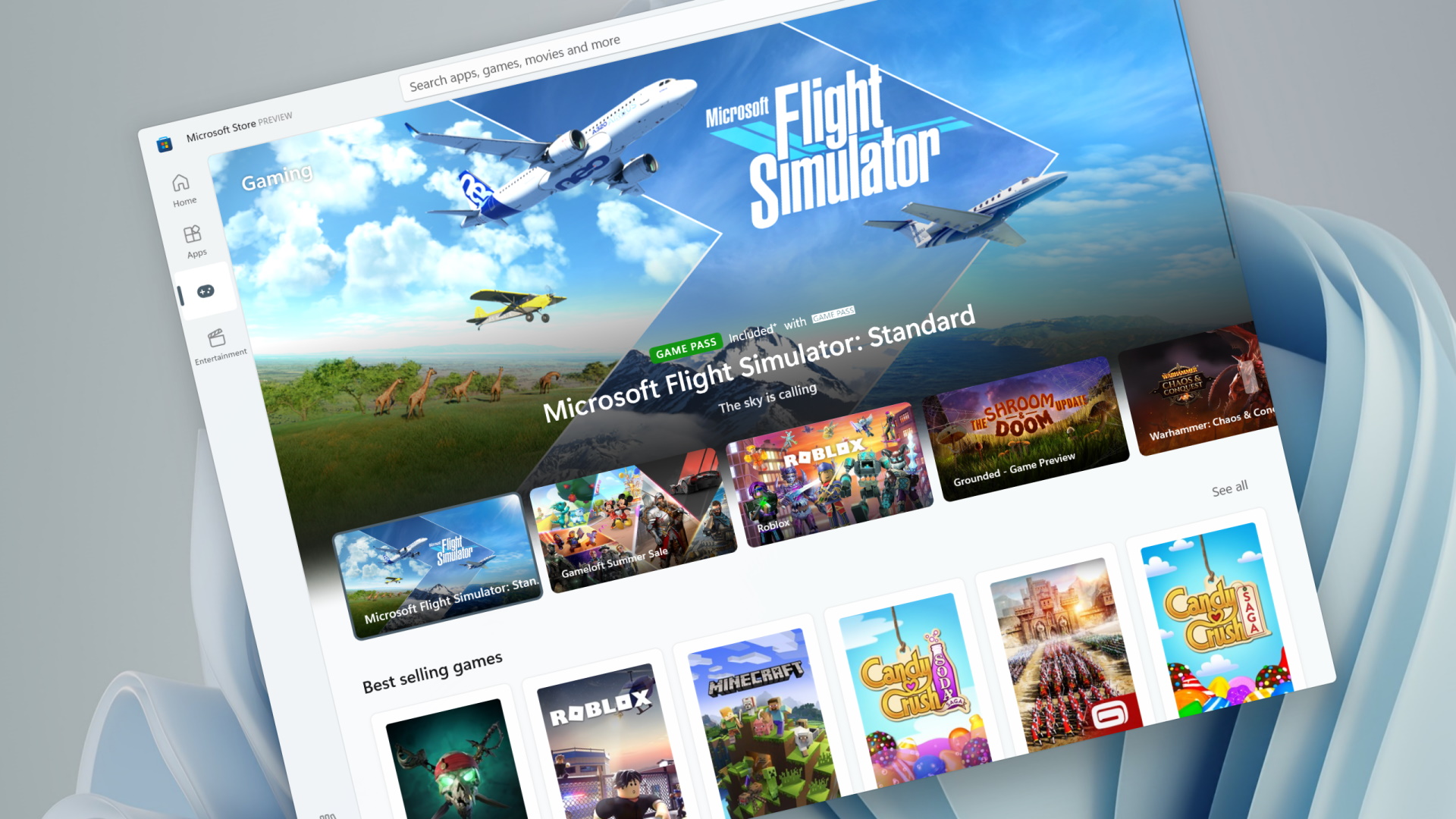
I like Windows. I like Windows a lot. It's not perfect, and there have been some ropey releases of the OS over the years, but it's the best we've got. PC games just work with it. Okay, mostly just work with it. Hardware plays nicely. Again, mostly. It's about as universal a standard as you can get and, from what I've seen of Windows 11, there's plenty to love about where Microsoft is heading.
With one exception: The Microsoft Store.
The world of wonder that is just a mouse-click away is getting a whole new interface in Windows 11. It'll be updated for Windows 10 as well, so don't worry you won't miss out. A fresh lick of paint. New curation. A safer playground to explore. There's even going to be a games library. It'll do so much, and we'll all live happily ever after. Or at least that is the implicit promise.
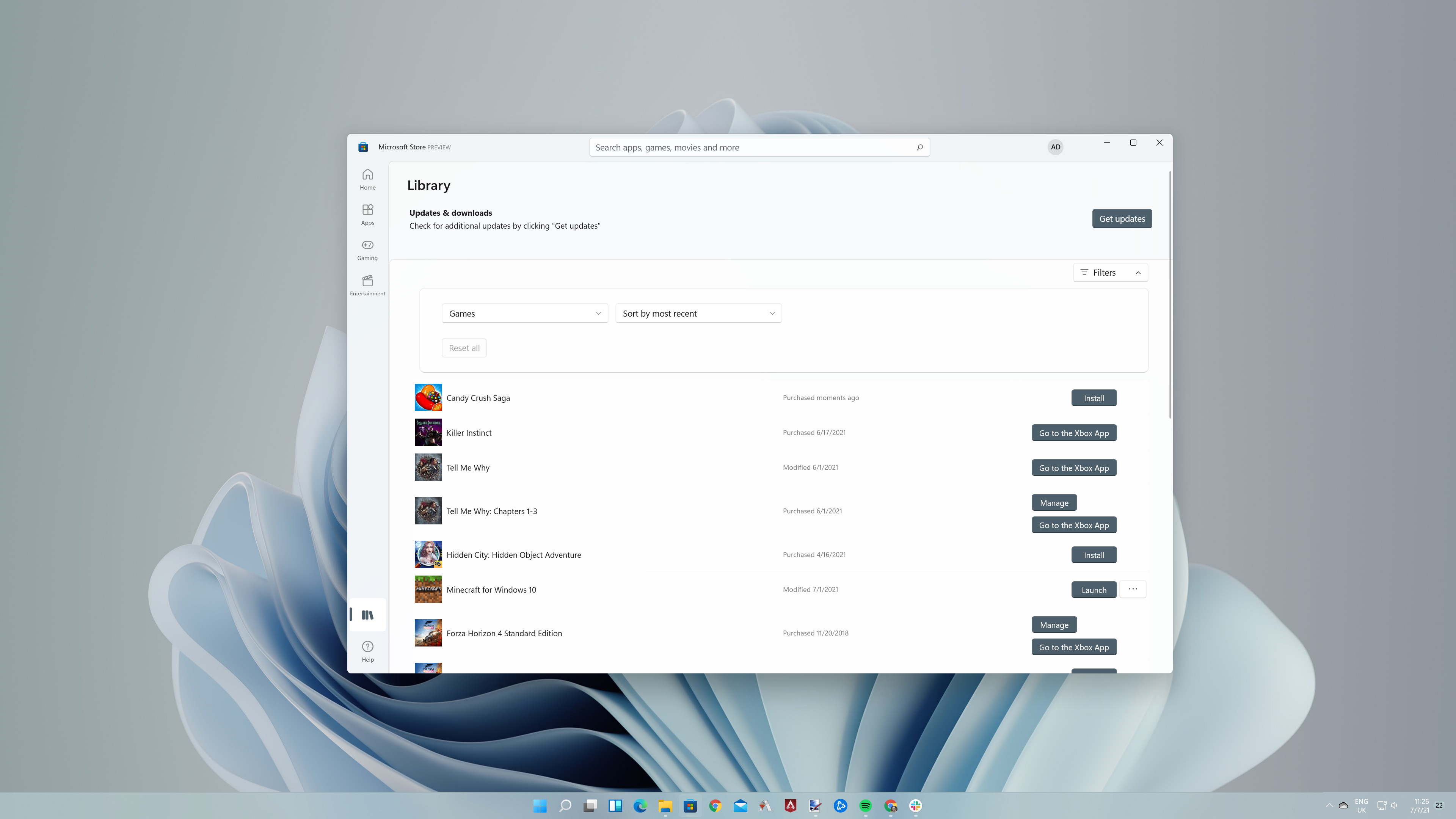
The problem is, the vast majority of us would be seriously hard pushed to spot if anything has changed because we use it so infrequently. There's a reason the Microsoft Store has been largely ignored, and it's got nothing to do with what it actually looks like. Well, it might do a little bit, but not enough to suddenly change its fortunes. It's because that isn't really how we get applications on our PC. They're not phones, this is just not how Windows works, or how most of us work with Windows.
At the moment, if I want an app I'll Google it. Yes, other browsers and search engines are available—our own Dave James swears by Microsoft Edge for example—but I'll grab my trusty Chrome install, type in what I'm looking for, and find my way to the developer's website. I may end up at some kind of file repository where I'm bombarded with ads and have to be careful what I click, but I've been doing this enough years to be able to manage it without too much trouble.
And I get that there are plenty of people that aren't as careful about what they're clicking, and their machines are filling up with digital crud that they don't need and didn't realise they were downloading in the first place. And I haven't even mentioned viruses or malware yet, but we all know that's where this is going. There are some bad people out there, and bad file hosting services, and nothing's free, etc.
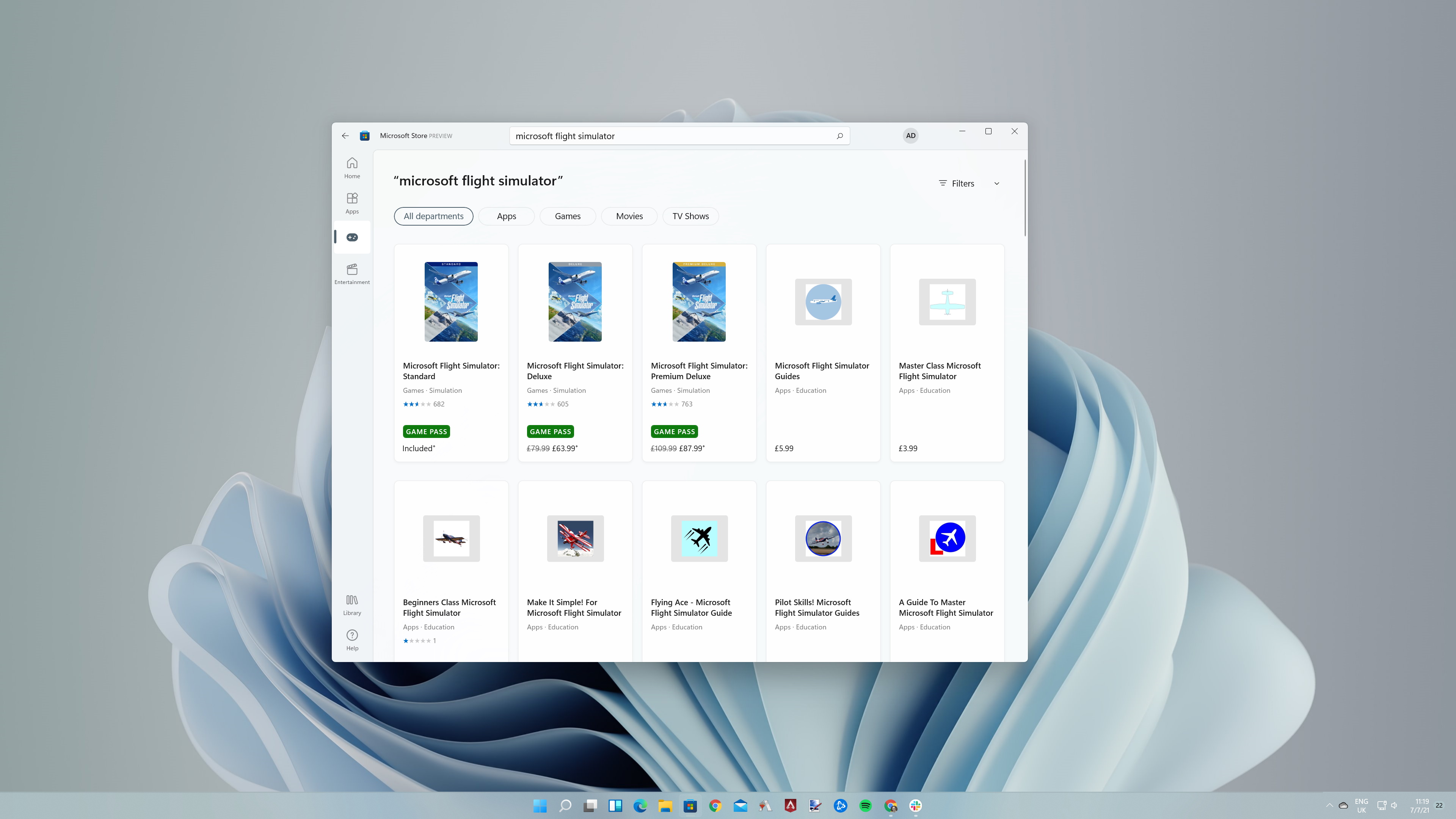
But Microsoft making its storefront the single source for everything isn't the answer either. That way leads to a walled garden, and if that's what you want, you could have bought an Apple Mac years ago and saved yourself a lot of trouble. Paid through the nose of course, but you know, time is money and all that. Those turtle necks are not going to buy themselves.
The biggest gaming news, reviews and hardware deals
Keep up to date with the most important stories and the best deals, as picked by the PC Gamer team.
But I'm not here to get annoyed at Apple, I'll save that for another time. No, it's Microsoft looking around at all these apps that its operating system supports and wondering how it can get a slice of the action. The thing is, I don't think I have ever in my whole life sat down and thought, you know what, I'm going to have a good look around the Microsoft Store and see what interesting application I can pick up today.
Has anyone ever done that? Ever wondered what interesting utility or application might be out there waiting to be discovered? Honestly?
No, with applications you have a problem, you've got something you're trying to do. You'll do a bit of research, maybe ask friends, and find the best application for that task. You'll then wander off and download it, or maybe even buy it. At no point do you think, 'Oh, I'll just have a look on the Microsoft Store, and see if they have anything.'
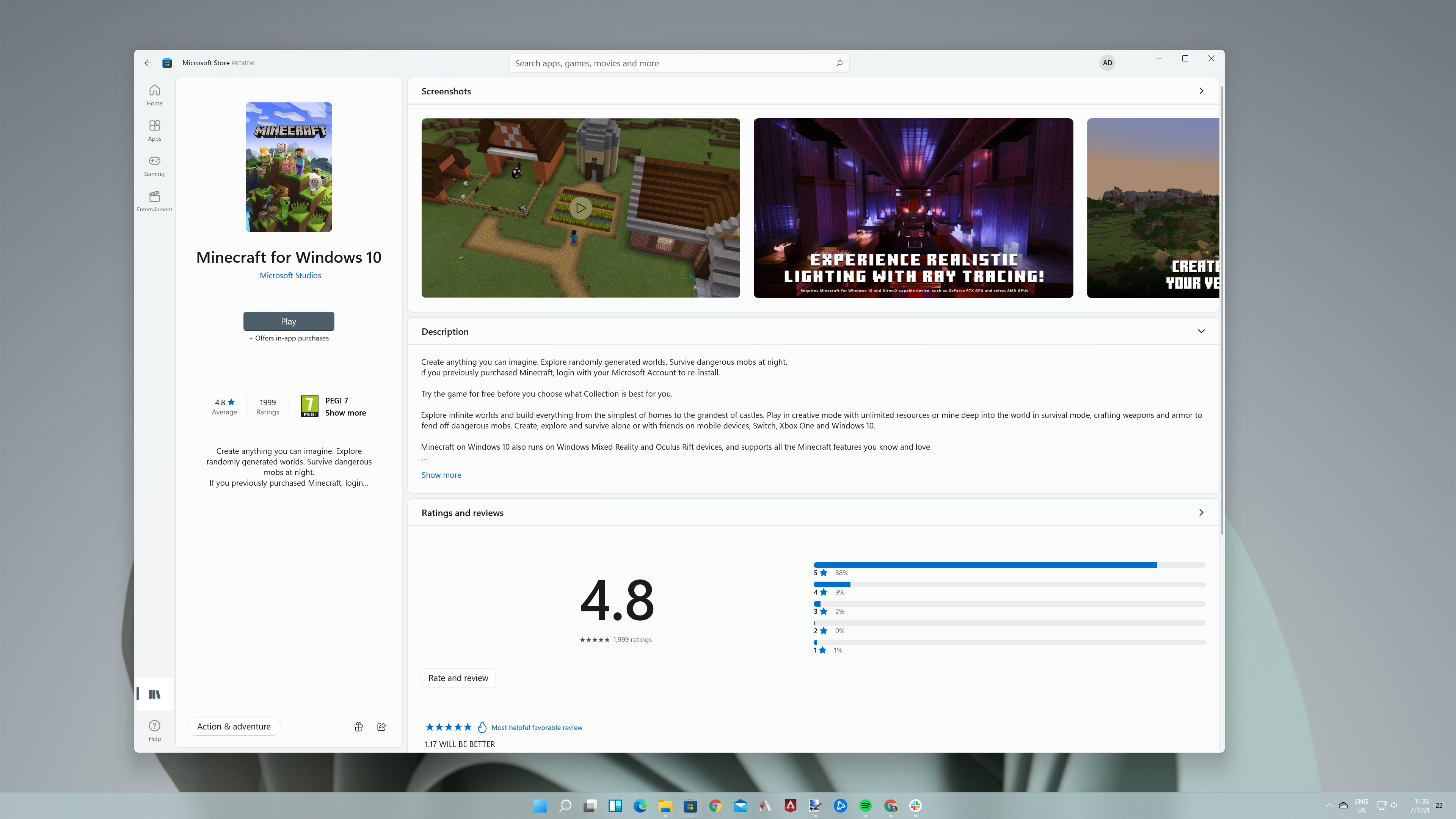
I regularly throw my tired eyes around Netflix and Amazon Prime Video, desperate for something new and interesting to watch. And the same goes for gaming too, although, with all of these, personal recommendations tend to be the way forward, not some AI-powered algorithm that generally turns out to be utterly awful—if you haven't seen The Tomorrow War, then can I suggest doing yourself a favour and just skipping that one.
To be fair to Microsoft, the new store will shift focus over to entertainment and gaming more, which makes sense, as we're far more likely to drop cash on an awful rom-com than we are on a financing app, but then it's fighting head to head with Netflix, Prime, and Steam et al. Good luck with that.
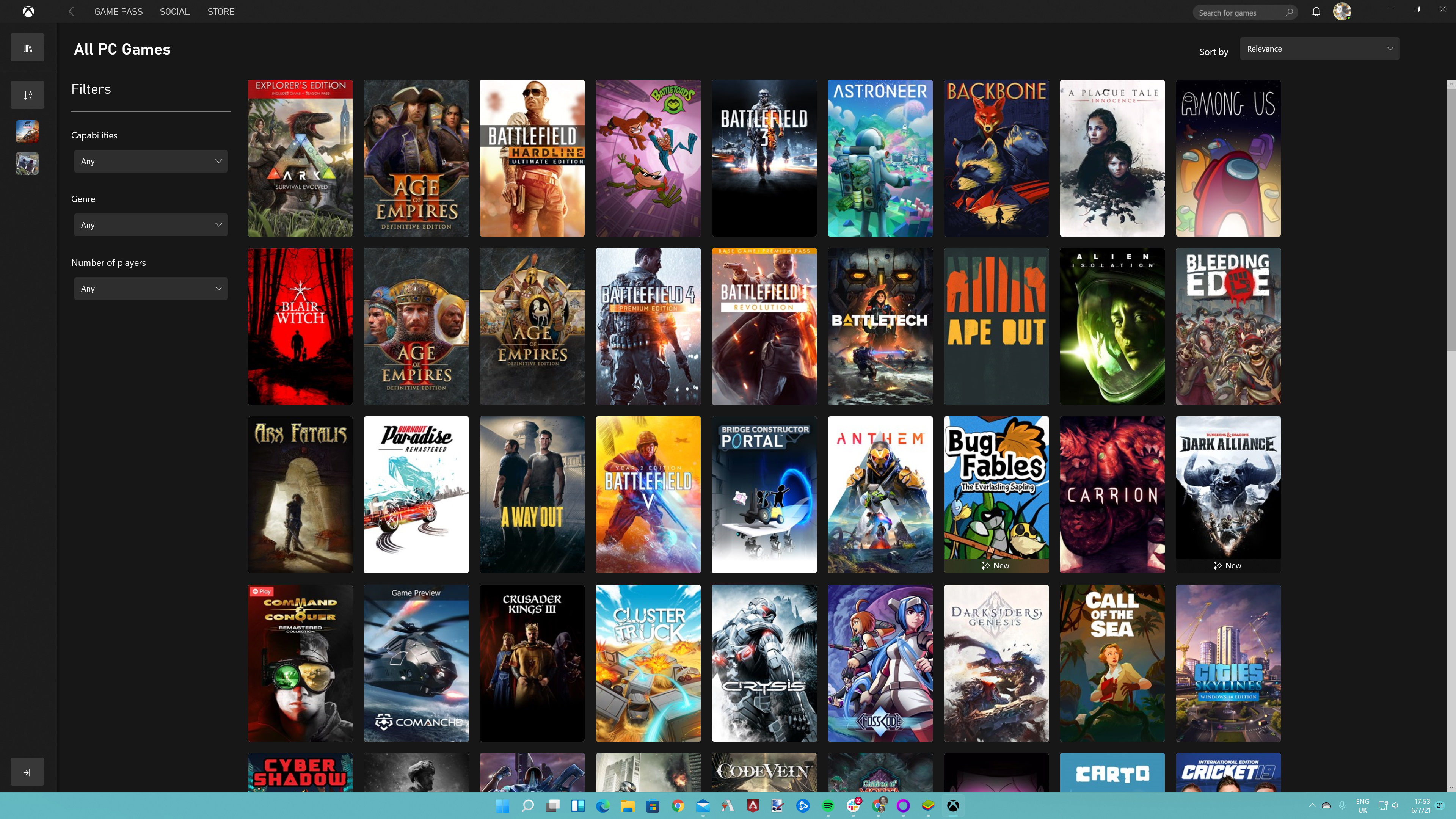
If you're convinced that Microsoft is the future here, you need to ask yourself a simple question: how many full-priced games have you bought on the Microsoft Store before now? And, assuming I know the answer, what do you think is going to change when Microsoft gives its store this fresh lick of paint? Even if the content is beautifully curated, and its recommendations are spot on, are you really going to click that shopping bag icon before checking out Steam first?
I like Windows and I like where it's going, but I doubt I'll ever intentionally open the Microsoft Store just to see if there's anything worthwhile lurking on there.
Alan has been writing about PC tech since before 3D graphics cards existed, and still vividly recalls having to fight with MS-DOS just to get games to load. He fondly remembers the killer combo of a Matrox Millenium and 3dfx Voodoo, and seeing Lara Croft in 3D for the first time. He's very glad hardware has advanced as much as it has though, and is particularly happy when putting the latest M.2 NVMe SSDs, AMD processors, and laptops through their paces. He has a long-lasting Magic: The Gathering obsession but limits this to MTG Arena these days.


